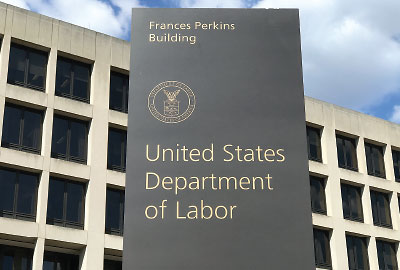UBH to Reimburse Beneficiaries, Pay Penalties
Abstract
A Department of Labor investigation found that United Behavioral Health reduced rates for mental health professionals, overcharged beneficiaries for services, and subjected them to utilization review and denials of care.

United Behavioral Health (UBH)/UnitedHealthcare Insurance Co. will pay $13.6 million to beneficiaries and $2,084,249 in penalties related to investigations and a lawsuit brought against UBH by the U.S. Department of Labor (DOL) and the office of the New York State Attorney General.
An investigation by DOL’s Employee Benefits Security Administration found that since 2013, United had reduced reimbursement rates for out-of-network mental health services provided by psychologists, thereby overcharging participants for those services. The managed care company especially flagged mental health patients for utilization review, resulting in many denials of payment for those services.
United’s actions violated the Mental Health Parity and Addiction Equity Act of 2008, which prohibits health plans governed by the Employee Retirement Income Security Act (ERISA) from imposing treatment limitations on mental health and substance use disorder benefits that are more restrictive than the treatment limitations they impose on medical and surgical benefits.
Investigators also found United failed to disclose sufficient information about these practices to plans and their participants and beneficiaries. In the settlement, United agreed to cease the violations, improve its disclosures to plan participants, and commit to future compliance.
“Protecting access to mental health and substance use disorder treatment is a priority for the Department of Labor—and something I believe in strongly as a person in long-term recovery,” said U.S. Secretary of Labor Marty Walsh in a statement. “This settlement provides compensation for many people who were denied full benefits and equitable treatment. We appreciate [New York] Attorney General Letitia James and her office’s partnership in investigating, identifying, and remedying these violations.”
In a statement, James said United’s violations were especially egregious in light of the great need for treatment during the opioid epidemic and the COVID-19 pandemic.
“In the shadow of the most devastating year for overdose deaths and in the face of growing mental health concerns due to the pandemic, access to this care is more critical than ever before,” she said. “United’s denial of these vital services was both unlawful and dangerous—putting millions in harm’s way during the darkest of times. There must be no barrier for New Yorkers seeking health care of any kind, and I will always fight to protect and expand it. I thank Secretary Walsh for his partnership on this important matter.” ■
Information about the DOL lawsuit is posted here.



